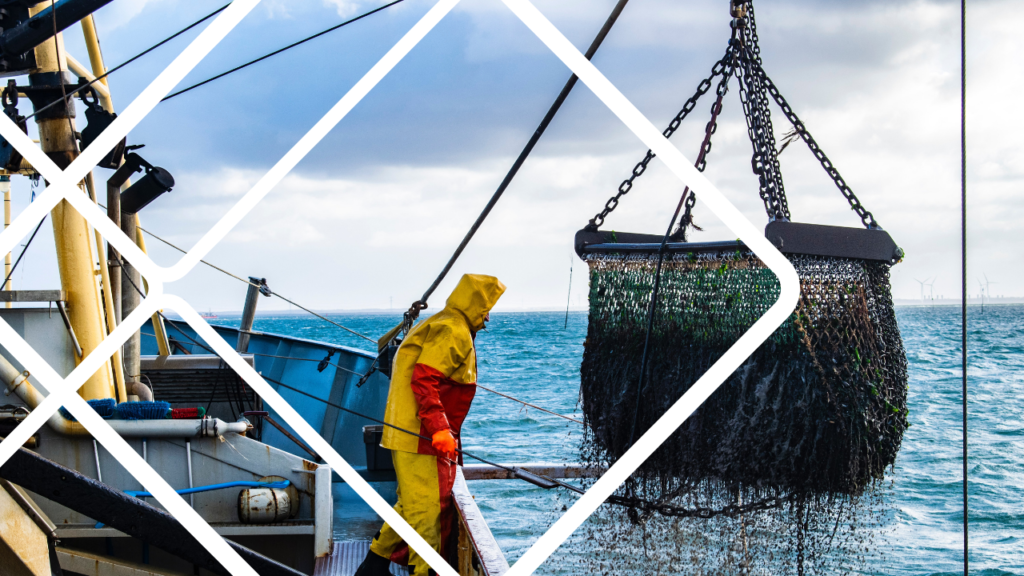
This article was written by Isabel Hoffmann, Manager at the Capitals Coalition.
Our food system is failing
Across the world, undernourishment persists while obesity booms. Food is wasted while access to nutrition and food sovereignty remains limited. Agricultural intensification is degrading terrestrial ecosystems and overfishing is pushing marine systems to the brink of collapse. We urgently need to shift towards more sustainable, efficient production of high quality, accessible food to remedy the failings of the food system and respond to the growing global population. The ocean presents a significant opportunity to achieve this, if sustainably managed.
Blue economy transformation
Sustainably developing our ocean-based economy – also known as our blue economy – can address many of the above mentioned challenges. Currently, only 17% of the world’s edible meat comes from the ocean, but this has the potential to increase six-fold. This potential represents a huge opportunity for business and finance, as well as food security, human health and the natural world.
Take mariculture, for example. As demand for fresh fish grows, wild stocks will need to be supplemented with farmed alternatives. This is an established industry but it still needs to mature into a more sustainable format.
Bivalves like oysters and mussels are an extremely promising alternative – they grow fast, they don’t need feeding, are high in protein and micronutrients, and they can act as a nature-based solution to protect coasts against erosion and storm surges.
Another particularly exciting emerging market is seaweed farming, which has significant carbon sequestrating potential and provides alternative livelihoods to fishing communities.
To date, these approaches have not taken off, largely due to lack of financing, consumer demand and scalability. But a capitals approach to the blue economy can help remove these barriers and unleash an ocean of opportunity.
A capitals approach
Many of the solutions emerging for blue foods have been used on an artisanal scale since time immemorial. Yet, these solutions are still largely unknown to the institutional investors needed to scale them to the levels needed to systemically transform the food system. A capitals approach can unlock financial flows by illuminating risks and opportunities associated with the investment, and by showing that the greatest risk lies in the cost of conventional and unsustainable use of oceans.
To funnel investment towards unfamiliar solutions like seaweed farms and oyster beds, investors need robust, comparable and long-term information, and a capitals assessment can help to provide this.
A key barrier for seafood businesses to uptake sustainable practices is lack of incentives from consumers. This is mostly driven by the lack of information available – the ocean is distant and impenetrable to many, and knowledge of provenance and impact of consumption is not as widespread as in land-based agriculture.
Established certification schemes such as the Marine Stewardship Council have greatly helped this consumer awareness but, to ensure businesses accountability, we need greater traceability and transparency of supply chains. A capitals approach provides the tools to map out supply chains and identify where inefficiencies lie and where negative externalities are unaccounted for.
Crucially, to realise the potential of the blue economy, we need to stabilise and restore our natural fish stocks. Not only for the health of the oceans, but also for the lives, livelihoods and markets that depend on them.
Marine spatial planning is instrumental in fisheries management as it helps to map the competing needs of multiple stakeholders – from local communities, to businesses, to conservation initiatives – and helps to guide decisions to satisfy the various trade-offs and identify hidden synergies. Supplementing this approach with information derived from a capitals assessment, such as monetary valuations, would allow for systematic comparisons to be made which will lead to more informed decisions in the allocation of resources.
What’s next?
Business needs to be an integral part of the solution to tackling the failings of our food systems. Businesses stand to gain immensely from addressing this issue, with an estimated benefit of US $6.7 trillion by 2050 for ocean-based food production. The business case for blue food is clear, and with the right push from finance and government, the market failure in the food system can begin to be remedied. Two of the biggest issues of our time could be solved as one – protecting our oceans, and addressing the food crisis. All we need now is the momentum and an integrated capitals approach to overcome our inertia.
The Capitals Coalition is launching a program to develop the capitals approach for ocean-based business decision-making. Complementing and extending beyond the existing Food System Transformation (TEEB AgriFood) project, this program will highlight the key role of business in sustainably unlocking the potential of the blue economy through a capitals approach. We are seeking partners to carry out in-depth capitals assessments with business, finance and government, addressing the key shifts needed to transition to a sustainable ocean economy: maintaining biodiversity and ecosystem services, driving sustainable investment, achieving climate targets, and ensuring equity and prosperity. For more information, contact isabel.hoffmann@capitalscoalition.org












